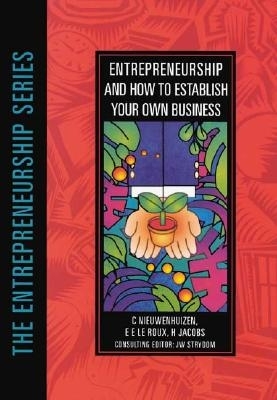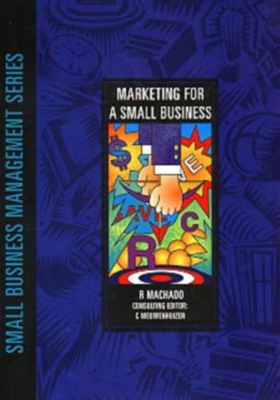Small Business Management
3 total works
Entrepreneurship and How to Establish Your Own Business
by Cecile Nieuwenhuizen, E.E. Le Roux, and H. Jacobs
Published 31 December 1996
A four-step process for developing business ideas and establishing an enterprise is laid out in this guide for business students and would-be entrepreneurs. Among the concepts presented are analyzing the small business and enterprise environment, focusing on the development of business ideas and a feasibility plan; testing the viability of the idea and creating a practical business plan, and familiarizing one-self with legal and other regulatory requirements prior to setting up the business. The book's interactive approach makes it particularly appropriate for self-study.
Marketing for a Small Business
by Ricardo Machado and Cecile Nieuwenhuizen
Published 6 February 1997
This text introduces students to the basic concepts of marketing, giving them the necessary guidance to enable them to carry out their own market research and to develop a marketing strategy. They are shown how to identify the target market or the specific area where their product or service is directed. Different aspects of marketing strategy relevant to a small business are also dealt with. These include planning and promotion of a product, its distribution and establishing the correct price in relation to competition in the market.
Focusing on the entrepreneur's behaviour, this work sets out to stimulate and inculcate the need to achieve by giving guidelines to effective entrepreneurship through achievement-motivation conditioning. It provides the reader with the means with which to: develop assertiveness, hone decision-making and problem-solving skills; master goal setting, action orientation and time management; foster interpersonal relations, communication, negotiation and networking; and give free rein to creativity, innovation and lateral thinking. This volume is part of a series which is accessible to those whose mother-tongue is English, and to those learning English as a second language. Study objectives for each chapter list specific outcomes; tables and diagrams reinforce learning, and cartoons inject instructive humour; and each chapter closes with a summary and self-evaluation exercise, integrating knowldge and practice.


